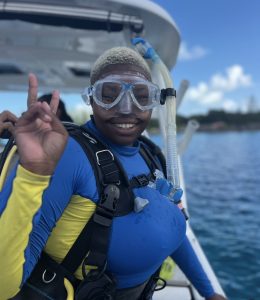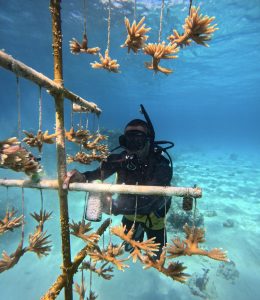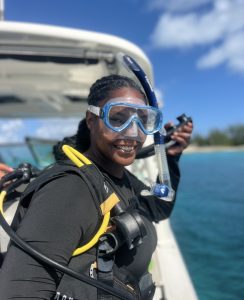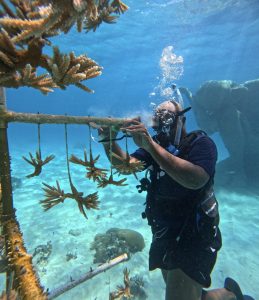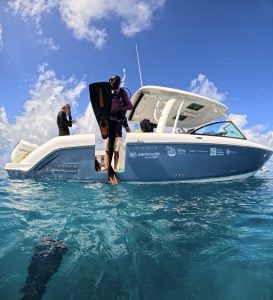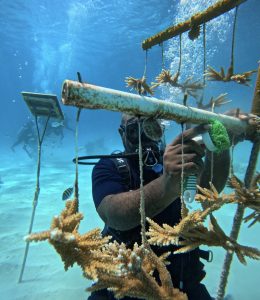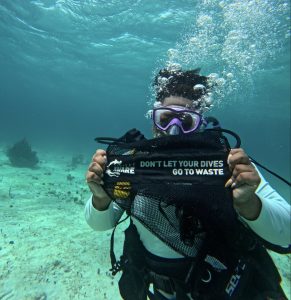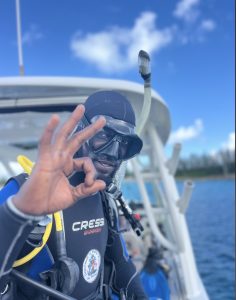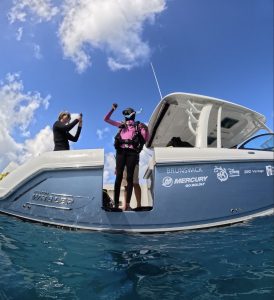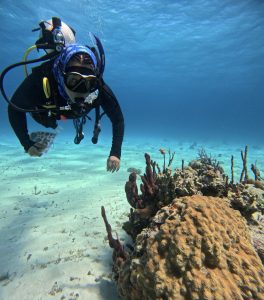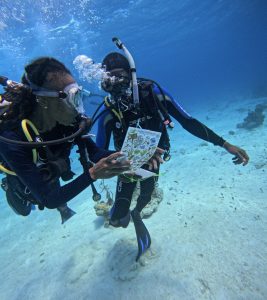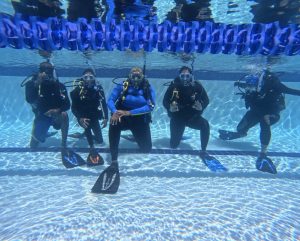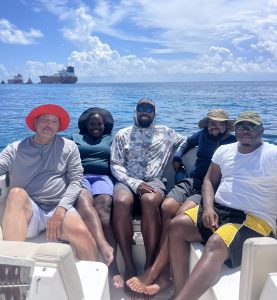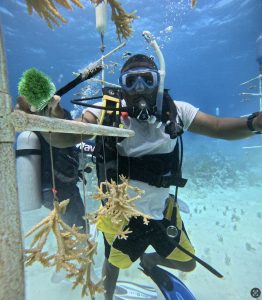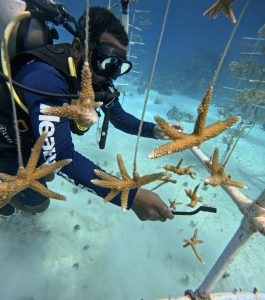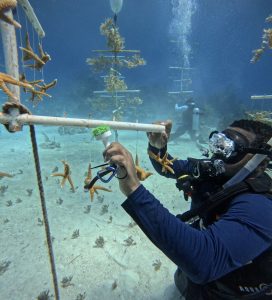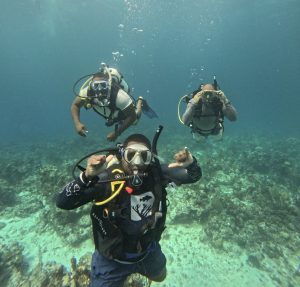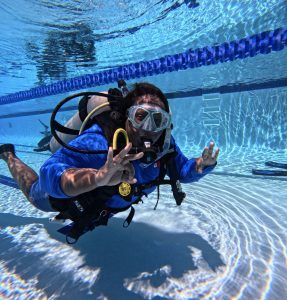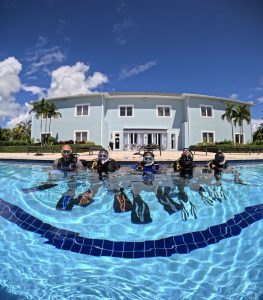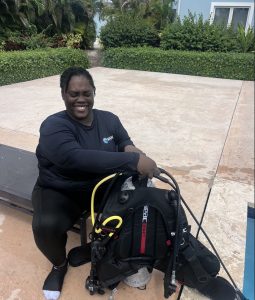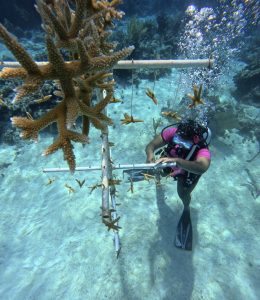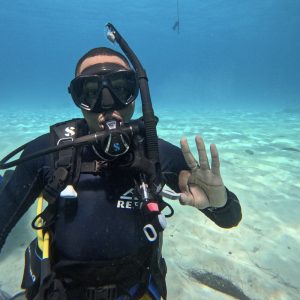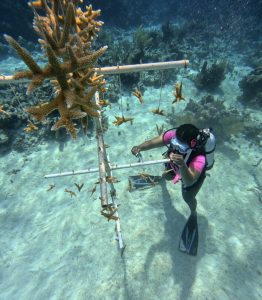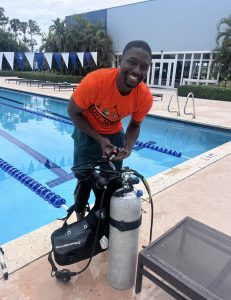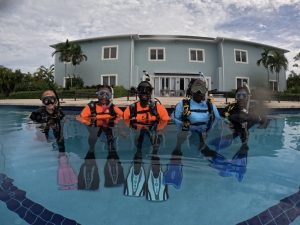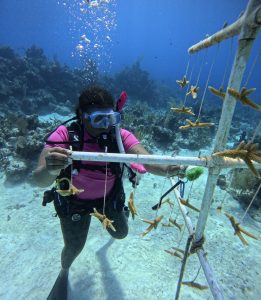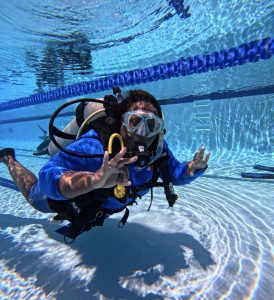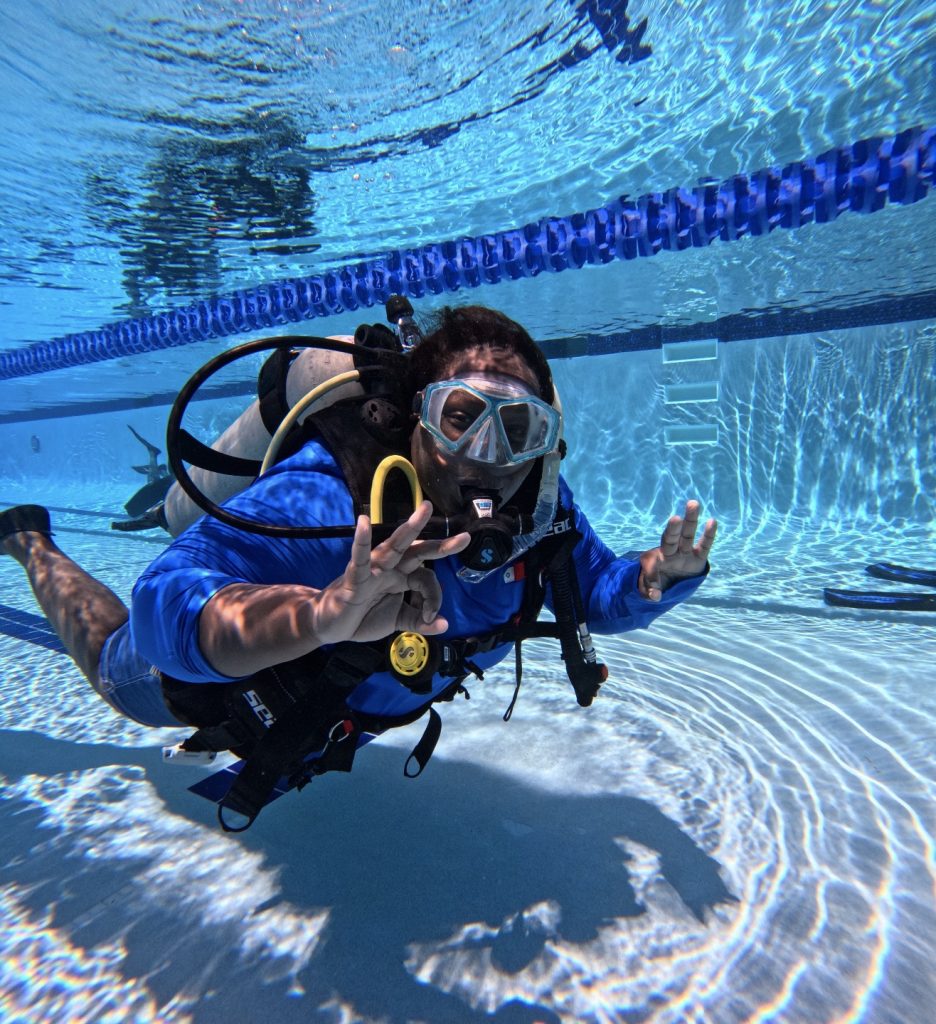 PIMS dive training in Nassau strengthened national coral restoration capacity across government agencies.
PIMS dive training in Nassau strengthened national coral restoration capacity across government agencies.Bahamas Dive Training Builds National Coral Restoration Capacity
Last fall, between the months of September and October, the Perry Institute for Marine Science (PIMS) ran a month-long dive training program in Nassau, The Bahamas, with funding support from the Disney Conservation Fund. Nineteen participants from Bahamian government agencies earned certifications and trainings spanning Emergency First Response, Open Water, Advanced Open Water, and Reef Rescue Diver.
Why this training matters for The Bahamas’ reefs
The program prioritized technical diving proficiency, coral restoration practice, and environmental stewardship; all key capabilities for monitoring and restoring coral reefs across multiple islands.
By equipping agency personnel with these skills, The Bahamas advances national reef monitoring and restoration capacity and builds lasting linkages between PIMS restoration initiatives and resource management agencies.
Participating agencies
Participants represented three major Bahamian government agencies: Department of Environmental Planning and Protection (DEPP), Department of Marine Resources (DMR), and Bahamas Wildlife Enforcement Network (BahWEN). Each plays a critical role in managing and protecting The Bahamas’ marine environment, and the training was designed to strengthen their ability to respond collaboratively to threats facing coral reefs.
The Department of Environmental Planning and Protection (DEPP) oversees national environmental policy, permitting, and pollution control to ensure the sustainable use of natural resources. Training DEPP officers was important because coral restoration work must align with national environmental regulations and long-term planning for ecosystem protection.
The Department of Marine Resources (DMR) manages fisheries resources and promotes the sustainable use of marine ecosystems. This training was valuable for DMR staff as coral reef health directly supports fisheries, food security, and coastal livelihoods—areas central to the department’s mission.
The Bahamas Wildlife Enforcement Network (BahWEN) focuses on enforcement and protection of wildlife and natural habitats across The Bahamas. Including BahWEN officers in the program was important for strengthening marine law enforcement and ensuring that coral restoration and monitoring efforts are supported by effective protection of restored sites.
Training team
The program was led by Kate Harrison, Course Director and Dive Program Manager at PIMS, with assistance from Duran Mitchell. Funding and support were provided by the Disney Conservation Fund, whose continued partnership has been instrumental in expanding national diving and coral restoration capacity.
Certifications earned
In total, 19 participants earned certifications across multiple levels, with 16 achieving the Reef Rescue Diver credential. Those officials that completed the PADI Reef Rescue Diver Course are now well-versed in conservation methods pertaining to coral reefs, and armed with new knowledge and skills, can directly boost coral restoration capacity nationwide.
| Agency | Participants | EFR | OW | AOW | Scuba Diver | Reef Rescue |
|---|---|---|---|---|---|---|
| DEPP | 9 | 9 | 1 | 5 | 2 | 7 |
| DMR | 6 | 6 | 1 | 5 | 0 | 5 |
| BahWEN | 4 | 4 | 4 | 0 | 0 | 4 |
| Total | 19 | 19 | 6 | 10 | 2 | 16 |
Certification summary by agency and level.
What’s next
PIMS aims to build on this momentum with advanced certifications and leadership-level training, contingent on continued external funding like the Disney Conservation Fund support provided for this session. Sustained partnership will be critical to maintaining this national capacity-building effort.
Coral reefs are the foundation of The Bahamas’ marine ecosystem and economy. They protect shorelines from erosion, support vital fisheries that sustain local communities, and attract visitors from around the world who contribute to the tourism industry. Healthy reefs also provide habitat for countless marine species, strengthen food security, and preserve cultural heritage deeply tied to the ocean. By building national capacity in coral restoration and reef monitoring, The Bahamas is investing in its natural defense systems and ensuring that future generations can continue to depend on the ocean for livelihoods, protection, and beauty.
About the Perry Institute for Marine Science
For over 50 years, the Perry Institute for Marine Science (PIMS) has led research and conservation across The Bahamas and the Caribbean—advancing coral reef restoration, sustainable fisheries, mangrove protection, and community education to protect ocean life for people and the planet.
Frequently Asked Questions
What is the Reef Rescue Diver certification?
It prepares divers to care for coral nurseries, plant corals on restoration sites, and contribute to monitoring—delivered through PIMS and the Reef Rescue Network.
Why is dive training important for conservation?
Training ensures safe data collection, improved restoration outcomes, and faster responses to bleaching or disease events—strengthening national reef resilience.
Who funded the training?
The Disney Conservation Fund supported the 2025 session. :contentReference[oaicite:8]{index=8}
How can I support coral restoration in The Bahamas?
You can donate, volunteer, or pursue Reef Rescue Diver training. Start here: perryinstitute.org/donate.



